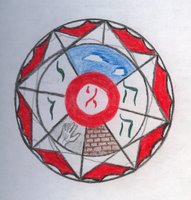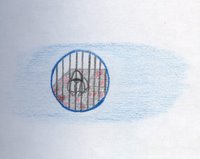
20 Cartier
The little humble house at 20 Cartier, the home of my grandparents, I remember so well. I’ve been receiving inner nudges to reflect upon this memory.
In 1986, my grandfather was then 80 years old, the roof needed redoing. His health had been failing him in the last two years. He had lost a lung to TB when he was a child yet he had persevered. He was a small man but very agile and in that very house’s backyard he performed his last cartwheel at 76. He was teaching me. The decision was made to place grandpa in long term care.
The neighbours got together and signed a petition stating that my grandparents’ house needed fixing or demolition. “Safety,” they cited as their main concern. “The house,” they said, “was not fit for an old woman to live in.” When my mom and my aunt had exhausted all avenues of potential funding the town sent their ultimatum, “demolish or we will.” It is funny however that at each town meeting we attended “safety,” never came up, it was always “depreciation of our (the neighbour’s) property,” that took precedence.
My grandfather told me stories about the days before the fire department and about all the neighbours running with pails of water to extinguish a fire down the street. He related how when the fire got out of hand and the house had been destroyed the neighbours had gotten together to help rebuild it. “How much did you get paid grandpa,” I asked. “Nothing,” he countered, “we did it out of the charity of our hearts.”
My grandfather was quite the story teller. Children from all over the neighbourhood gathered at his feet by his lawn chair to hear him speak of the “old days.” He also had scary ghost stories from the East Coast. Grandma would come out with a pitcher of juice and a plate of homemade cookies to keep us refreshed. Sometimes grandpa would pull out his fiddle and accompany grandma’s singing. If the weather got inclement then everyone moved into the living room and more plates of treats would come out. The coffee table would be moved out of the way to make room for jigging and tapping feet.
The town volunteered to demolish the house, for a price. The cost of demolishing was roughly the same as the cost for fixing the roof. “Not to worry,” they said, “we’ll take payments.” An old friend of the family came to the rescue and offered to help.
I remember winter nights in front of the old television set. It was freezing outside, 4 foot snow banks lined the street, but it was warm in that living room. There was a Stompin’ Tom Connors special on TV and grandpa said he met him in Timmins. The story was that my uncle, who lived and mined in Timmins did as most miners did to relieve the stress, he would hang out at the Maple Leaf Hotel and that is where he met Stompin Tom with his plank of wood - used for stomping of course. Story was that on one occasion the party wound up at my uncle’s house and my grandfather played the fiddle for Tom. I had the “Tragedy Trail” album and would sing and cry the words to all his songs. This album was particularly meaningful for our family because it spoke about the North we lived in. I always liked the way Stompin’ Tom could get into the root of things and I secretly fantasized that one day he would write about my grandparents. I guess it would be a second Tragedy album.
In hindsight I see that the loss of my grandparents was a tragedy, of course there’s personal loss, but the insight I gleamed was that their death coincided with the death of a way of life.
Ode to my Grandparents
Grandparents what ocean have you
crossed
Your message so surely would be lost
If not for your choice of
channel
Upon the heart’s mantel
Grandparents of the
land
Gently you took my hand
We walked on water far and away
To reach
the break of day
Grandparents of the night
Show forth your
light
Afraid of the dark I pray
A reunion at the end of the
day
“Grandpa,” pull out your fiddle
“Grandma,” sing me a
riddle
Sing me to sleep tonight
I’m afraid things aren’t
right
“Grandpa,” so tall and strong
Tell them they are
wrong
The land you tilled now wastes
For the sake of popular
tastes
“Grandma,” so gentle and wise
Show them the way of their
lies
The warmth you carefully cultivated
Today is ridiculed and now is
abdicated
Grandparents please unite once more
The world needs
peace, not war
When we were stalling, unable to decide about demolishing the family home, (a decision that had already been made by someone else,) we were still coming to terms with it all, a proposition was made to sweeten the deal. The social services program in our area would buy the land on the condition that the house was demolished. The land would be used to build a house for mentally challenged individuals. Grandpa always said that the mentally challenged were such a peaceful lot and that they were guaranteed a place in heaven. It was the breaking point, we signed the papers.
Murphy’s ghost! Or was it, “Le Siffleur a Moreau?” Grandpa had many ghost stories but I was a scared-y cat and so grandma would stop him from telling me the real horrific ones. What I remember well though is that he said that when he crossed over he would come back like old Mrs. So-and-so whose chair rocked after she died. He would play his fiddle, he said, in the little humble house at 20 Cartier.
Grandpa never knew that the house was demolished. He was living at the nursing home at the time. Grandpa never knew that when social services had went public with their plans of building a home for the mentally challenged at 20 Cartier, that the neighbours once again signed a petition. This petition claimed that “they were afraid of the implications of having mental patients as neighbours.” Grandpa never knew that the land that once held his home was abandoned and for sale.
I was thinking about how my grandfather never knew about the demolition of his house and I realized that although I knew about it I didn’t witness the demolition. I had to play the film within to witness it with my inner eyes.
I saw the neighbours with their axes and chainsaws.
I saw them take a first swing, then another and another.
With each blow I felt a deep ache within my heart.
It wasn’t a house they were demolishing, it was a way of life, it was a home with a soul. This home had been a refuge for the weary, the seekers and the pioneers of life. This home had been a center of learning and love and a benchmark of values. As the last of the house succumbed to the will of the demolitionists I was in tears and wrote the following letter to my grandfather in his native tongue.
Lettre a mon grand-père
Pepére, je vais planter un arbre sur ton lot, la ou ta maison étais situé. Depuis les voisins l’ont détruit il y manque la vie. En plus les voisins semblent vouloir arracher tout ce qui reste, « couper l’herbe, enlever les buissons » ils crient. Je refuse enlever la vie Pepére, au contraire, il faudra la réanimé. Alors je vais planter un arbre sur ton lot. Et il grandira juste qu’au ciel. Et j’y grimperais pour te retrouver. Pepére tu pourras peut-être venir a ma rencontre, a mi-chemin? J’ai peur. Je suis tellement seul. Mémére, elle est là avec toi? Je l’entends parfois chanter et toi tu l’accompagnes avec ton violon. Mon père, il est aller visiter? Il faudra que vous gardiez vos instruments bien accorder, toi et lui, pour que tous soient près pour la grande célébration quand enfin ont seras tous réunis de nouveau. Je t’aime Pepére. Je vous aiment tous, fais sur de passer mes saluts, mes caresses et mon amour a tous. En attendant si tu peux veiller sur le petit arbre que je vais planter sur ton lot. A la prochaine.
Ta petite fille, la fille a « poppa »
(Note : I find that a translation of the above loses its emotional value.)
Now I wonder: where does grandpa play his fiddle? Where does grandma sing?

I’ll bet there are still lots of children gathered at their feet.
I find solace in Chief Seattle’s famous words,
"But how can you buy or sell the sky? The land? The idea is strange
to us… If we sell you our land, remember that the air is precious to us,
that the air shares its spirit with all the life it supports. The wind
that gave our grandfather his first breath also receives his last sigh.
The wind also gives our children the spirit of life… This we know:
the earth does not belong to man, man belongs to the earth. All things are
connected like the blood that unites us all. Man did not weave the web of
life, he is merely a strand in it. Whatever he does to the web, he does to
himself… (Will there be any of the spirit of my people left?)… We
love this earth as a newborn loves its mother’s heartbeat. So if we sell
you our land, love it as we have loved it… Hold in your mind the memory of
the land as it is when you receive it. Preserve the land for all children and
love it, as God loves us all. "
(Qtd in, The Power of Myth (1988) page 34, by Joseph Campbell with Bill Moyers.)








